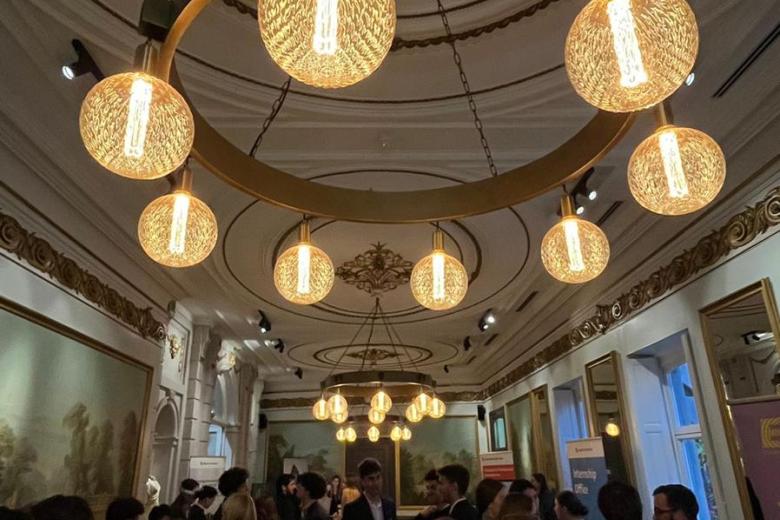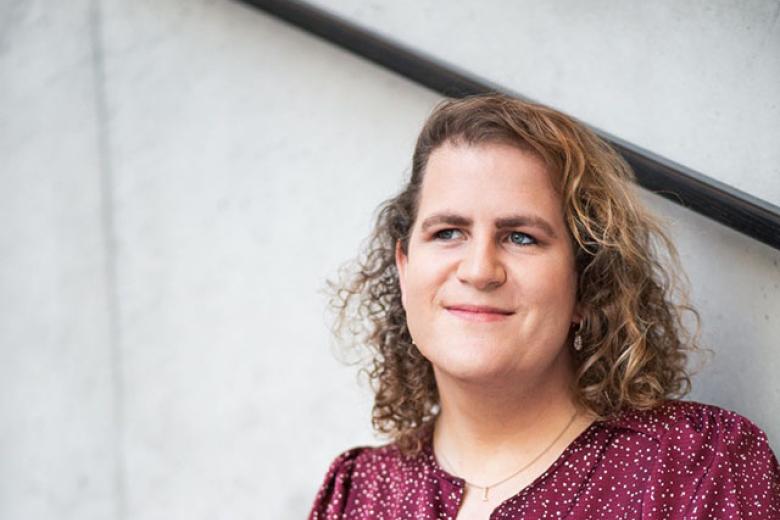Students and residents collaborate on local quality of life
In the Maastricht neighbourhoods of Mariaberg and Randwyck, some 400 students from Maastricht University (UM) and Zuyd University of Applied Sciences will work together with residents to enhance the local quality of life. One of them is Trinh Nguyen, a psychology student at UM. “The City Deal project is supposed to help residents, but I’m learning a lot as well.”
Nguyen (20), from Vietnam, lives on the Tongerseweg, close to the Mariaberg border. Although she doesn’t speak Dutch yet, she decided to sign up for the City Deal anyway. “I figured, I’ll just try, what’s the worst that can happen? We look for creative ways around the language barrier. When I’m doing interviews with residents, I work with someone who does speak Dutch. Sometimes it can be frustrating that I don’t understand everything, but I’m certain it’ll work out.”
Neighbourhood network
City Deal initiatives have been established in various student cities. In Maastricht, the city council, UM and Zuyd are working together to find smart solutions to social and spatial problems. Through collaboration with residents, the interaction between students and locals improves. The participating researchers/lecturers and students have begun making an inventory of initiatives relating to quality of life in Maastricht, with Mariaberg and Randwyck selected for the first pilots. “These areas are quite different in character, but they already have neighbourhood networks in place, which means we don’t have to start from scratch”, says Simone van der Steen, Knowledge Economy coordinator at the Maastricht city council.
Dog walking
City Deal Maastricht stands out in the Netherlands for the sheer number of participating students and faculties. The UM participants come from Arts & Culture, Public Health, Psychology and University College Maastricht. The participants from Zuyd are from the Built Environment, Occupational Therapy, Culture and Media Design, Social Work, Hotel School and Facilities Management programmes. Particularly special is the collaboration between UM and Zuyd students from different disciplines. This way, not only are academic and practical approaches combined, but problems and possibilities are viewed from different disciplinary angles.
“My group has come up with a plan together with the social neighbourhood team and the welfare organisation Trajekt”, says Nguyen. “We noticed that many residents of Mariaberg, especially older ones, feel unsafe. Our idea is to bring older people, young people and dog owners from the neighbourhood into contact. If we can get them to walk the dogs together, we can strengthen social ties and increase the sense of safety. It’s a simple plan that’s also cheap to implement.”
Design week
Nguyen’s team has already made contact with Trajekt and a number of local residents. “But we’re still in the research phase; after the pilot we hope to develop our plan further. In the ideal situation, the project would then run weekly or monthly. And if that doesn’t work, we at least want the idea to be picked up at a later time.” So far, her experiences have been positive. “As a foreigner I view the neighbourhood differently to locals. I see things they don’t see. The nice thing is that the people are very open. We’re trying to ‘help’ them, but it’s also the other way around. I’m learning a lot myself.”
City Deal Maastricht will run for three years, with the work done in blocks of a given number of weeks. In the week of 18 November, the first findings from the research period will be presented during an international design week. At that point a number of international students will also join the project. The respective plans will be officially presented in February 2020, after which the student groups will further develop and implement their ideas in Mariaberg and Randwyck.
Also read
-
Maastricht Business Days 2024: Building bridges between talent and opportunity.
The Maastricht Business Days (MBD) have been a hallmark of the School of Business and Economics (SBE) since their inception in 1996, standing out as the most prestigious student recruitment event. Organized by SCOPE, the faculty’s dynamic study association, the MBDs connect over 600 students annually...
-
Empowering Smallholder Farmers in the Data Economy: Unlocking Opportunities and Overcoming Obstacles
Frederik Claasen, the head of policy at our partner organisation Solidaridad Network on the opportunities and obstacles facing smallholder farmers in their data ecosystems.
-
Soft landing in Vienna
After several rocky years, Maastricht University alum Lea Vink has found her feet in Vienna. Professionally, she is taking new steps at the crossroads of aviation and organisational psychology. And on a personal level, luck has smiled on her since her transition from man to woman.